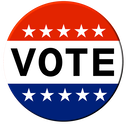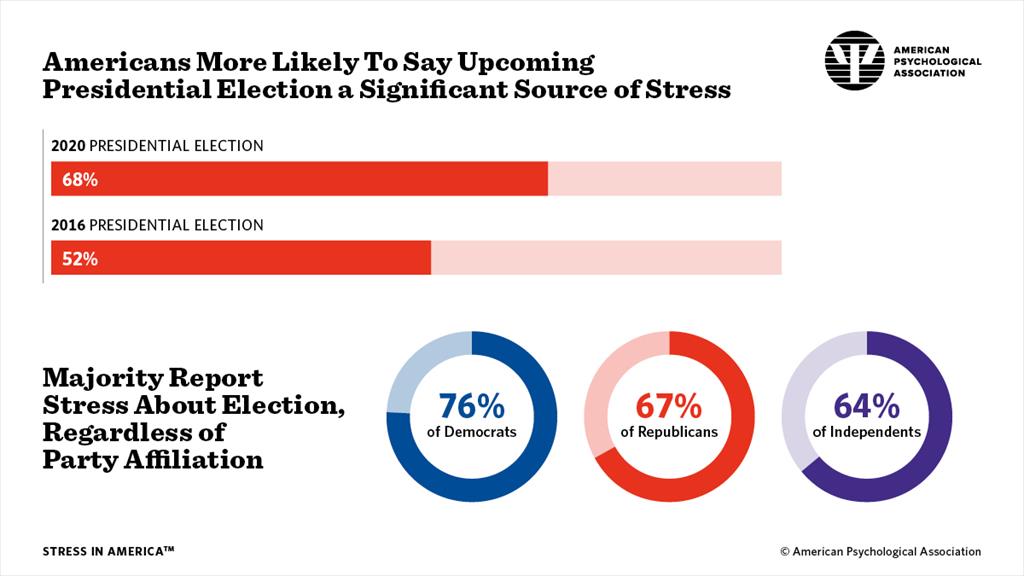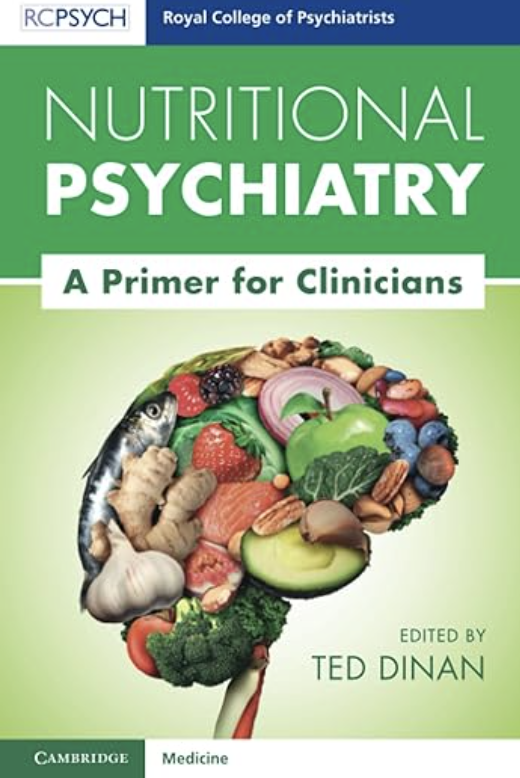 Dr. Steven Stosny coined the term "election stress disorder” in 2016, with symptoms such as increased anxiety, insomnia, and difficulty concentrating. Dr. Stosny observed that "the pervasive negativity of political campaigns, amplified by the 24-hour news cycle and social media exposure," creates a significant level of stress, anxiety, or anger in many people. The American American Psychological Association (APA) Stress in America Survey found that more than two-thirds of U.S. adults (68%) say that the 2020 U.S. presidential election is a significant source of stress in their life. This is a substantial increase from the 2016 presidential election when 52% of US adults reported the same. “This has been a year unlike any other in living memory,” said Arthur C. Evans Jr., PhD, the APA's chief executive officer. “Not only are we in the midst of a global pandemic that has killed more than 200,000 Americans, but we are also facing increasing division and hostility in the presidential election. Add to that racial turmoil in our cities, the unsteady economy and climate change that has fueled widespread wildfires and other natural disasters. The result is an accumulation of stressors that are taking a physical and emotional toll on Americans.” The APA offers the following evidence-based advice to help people manage their stress related to the election:
Comments are closed.
|
About the AuthorClinical psychologist Dr. Kristy Novinski contributes insights, book and film reviews, discussions of pop culture, and exploration of news and research in the field of psychology. What I'm Reading
Categories
All
|
Las Colinas Psychological Services, PLLC |
© 2023 Las Colinas Psychological Services, PLLC. All rights reserved.
|


 RSS Feed
RSS Feed

